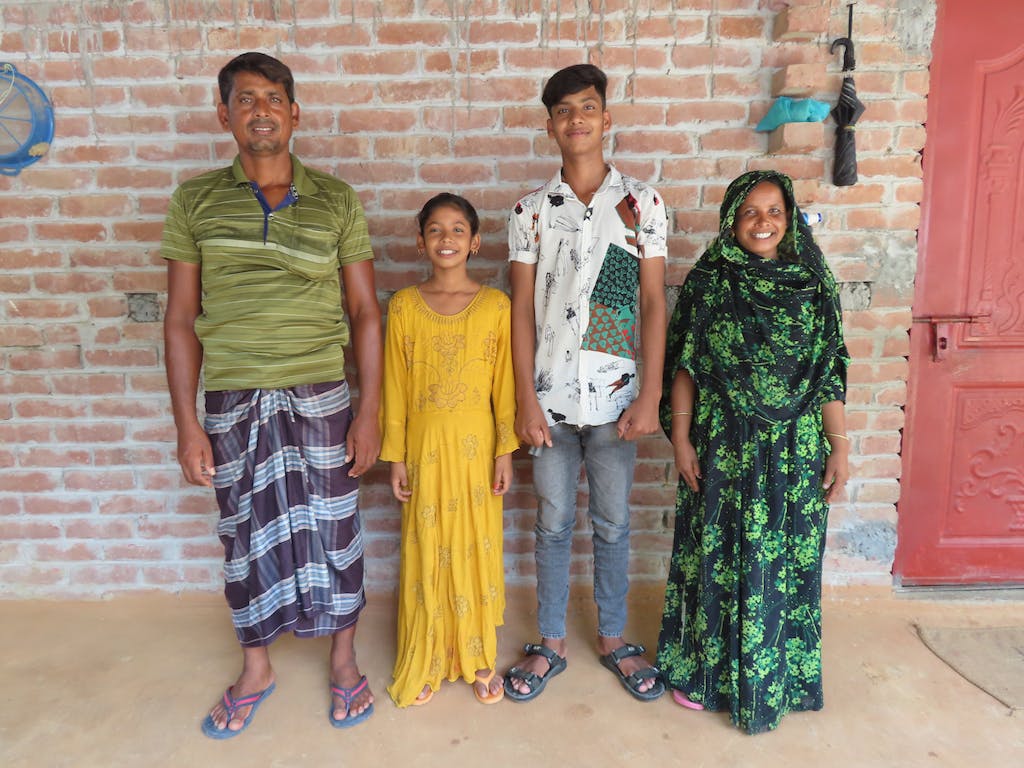Julekha, a mother in Bangladesh, faced numerous challenges in meeting her family’s needs alongside her husband, Nasirul. They live in a community in Tanore region with their son, Rushar, 15, and daughter Ambia, 11.
Nasirul engaged in limited farming and handyman activities, based on the needs of neighbors. But he primarily worked in a brick kiln. It was very difficult work, paid poorly and was only seasonal. In the good season, his monthly income averaged only BDT 2,000-2,500 (US $18-$23). But during the three to four months each year when he had no job opportunities, the family’s financial struggles intensified.
Poor Living Conditions
“We lived in a house with only one room and no latrine for the four of us, which made it very difficult for the children to study. We all became impatient with each other. “
Additionally, they attempted to raise poultry and could only keep the animals safe in the house, which caused very unpleasant odors, especially at night.
The unsanitary environment took a toll on the family’s health. “We frequently fell ill, and it was difficult to access treatment due to our low income “During those challenging times, I felt trapped in a cycle of despair,” Julekha said.
That all changed, she said, when Food for the Hungry (FH) came to their community in January 2017. Ambia soon joined FH child sponsorship. She received help with all her school needs and supplies, and she and her family received access to healthful food to prepare as well as nutrition and hygiene training.
Opportunities for Every Family Member
But FH sponsorship helped the whole family, not only Ambia. Julekha also became excited about the opportunities FH offered her. She joined the adult literacy program to improve her own skills, so she would be able to help teach her children.
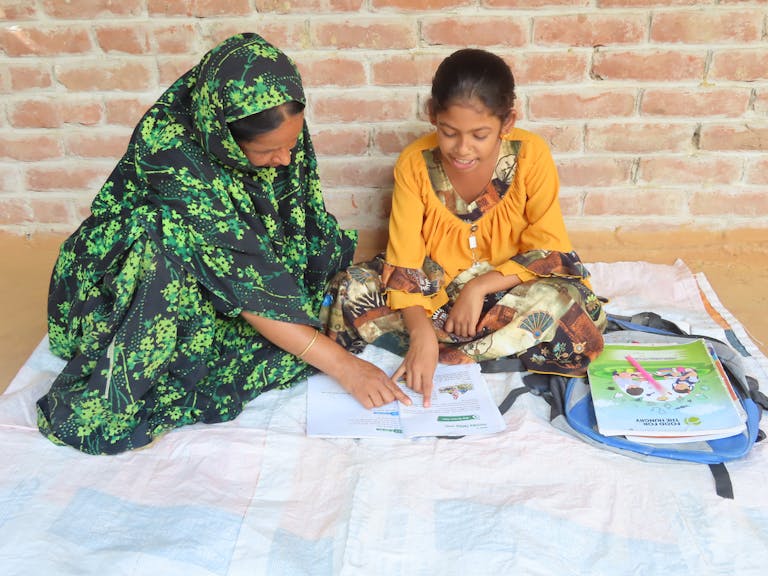
She also trained to become a mother leader in the FH education cascade group. As she was able to help her neighbors, she developed strong relationships with them. She became an active member of a saving group.
Skills for a Brighter Future
“I particularly enjoyed the math class,” Julekha said. “Previously, I struggled with even basic arithmetic. Now I love to read and learn, which also enabled me to develop a livelihood. I had the privilege of attending a training session on goat rearing, where I acquired valuable skills. At the completion of the class, I received a goat. When the goat gave birth to its first kid, I decided to pass it on to one of my neighbors, spreading the benefits within the community.
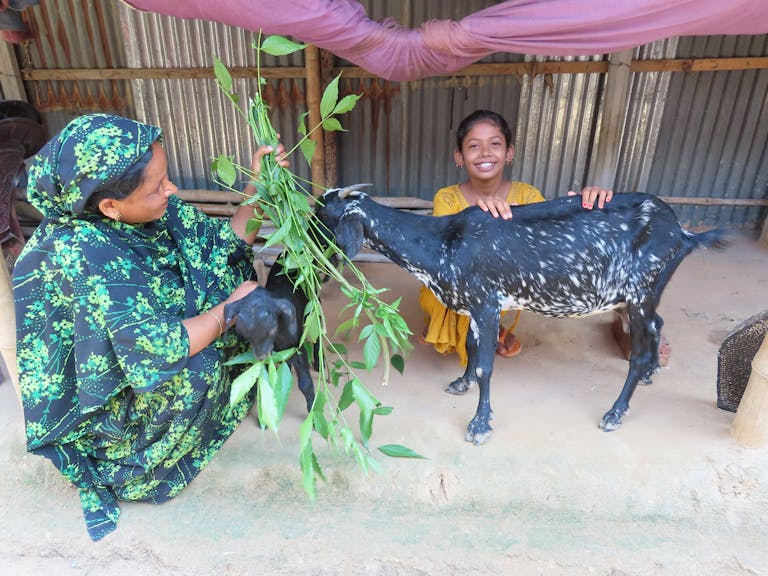
“In 2022, I had the opportunity to participate in management training. I learned to effectively conduct meetings. I now confidently lead meetings with our 24-member saving group, ensuring that everyone’s voice is heard and decisions are made collectively.”
Helping Her Community
Julekha explained that, as a trained mother leader, she shares valuable lessons with her eight-member neighbor circle. “This role allows me to empower and inspire others in our community to work toward personal and educational growth. The guidance provided by FH has enabled me to expand my knowledge and contribute to the betterment of our community.”
Through FH’s support, Julekha’s family, once the poorest in the community, received an auto battery-powered van, addressing their pressing transportation needs. With the van, her husband was able to find better opportunities and now works 8-9 hours a day in all seasons. With their increased income, they were able to upgrade the van and build a new house.
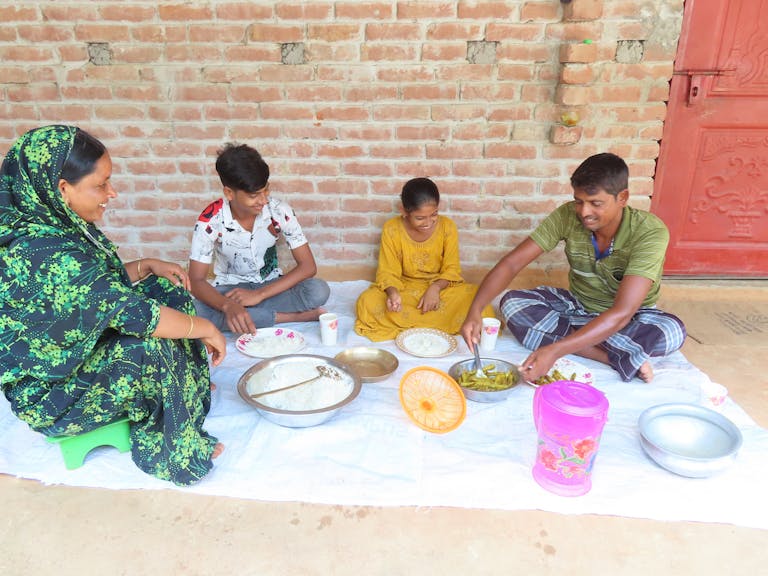
A Better Life for the Whole Family
“My home is larger, constructed with brick walls and a tin roof, for a much more stable and secure living environment,” Julekha said
“As for my children’s education, my daughter is currently in the third grade at a nearby private school, and my son is in the ninth grade at a high school less than two kilometers away from our house,” Julekha said proudly.
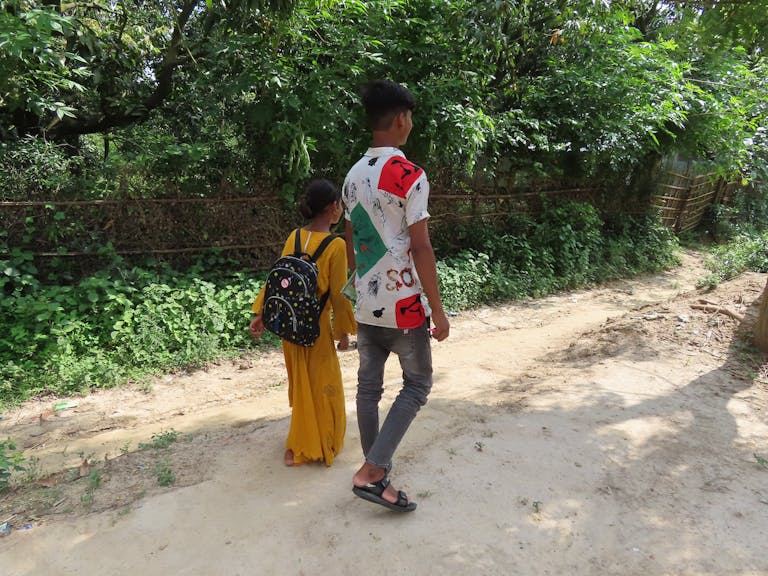
“Child sponsorship helped our child, but it is also helping the whole family. And the training I received from FH allowed me to better provide for my children and be involved in supporting their education.”

